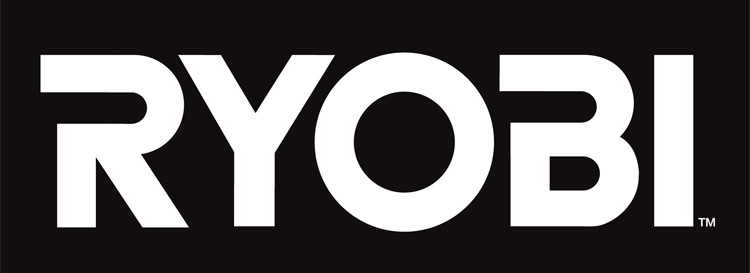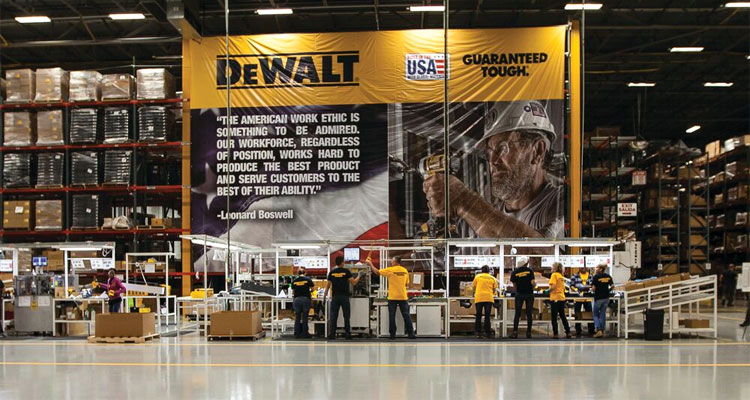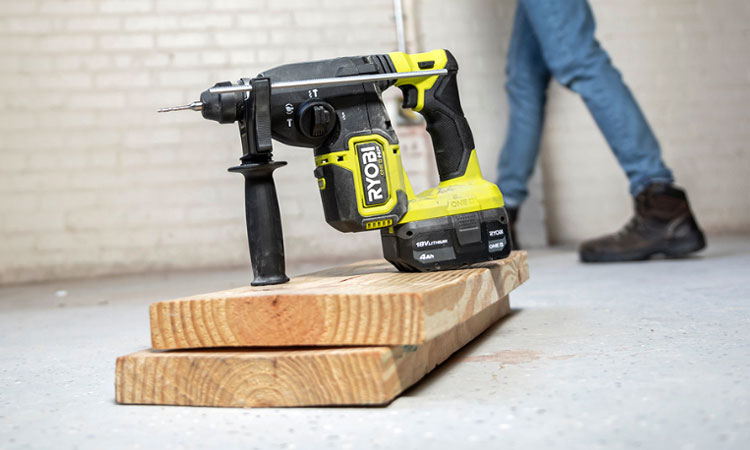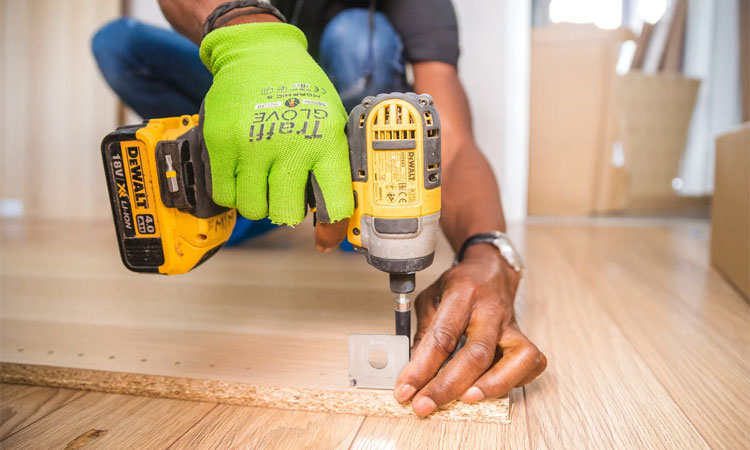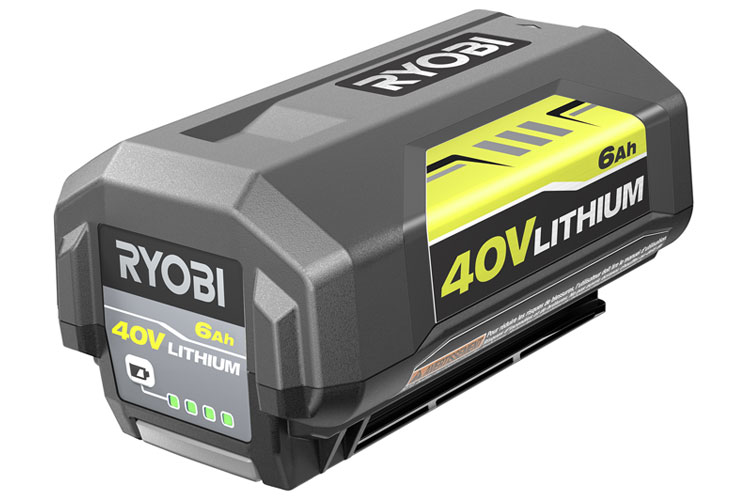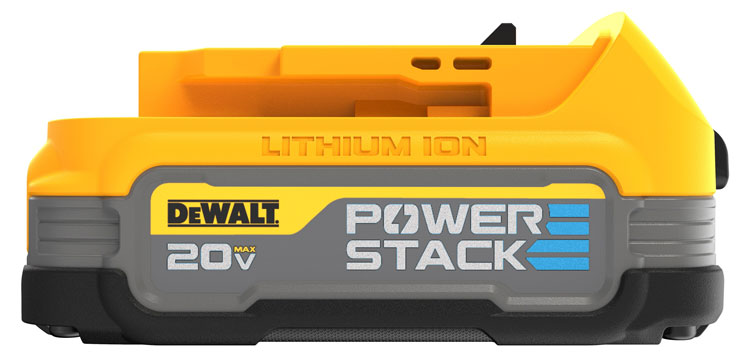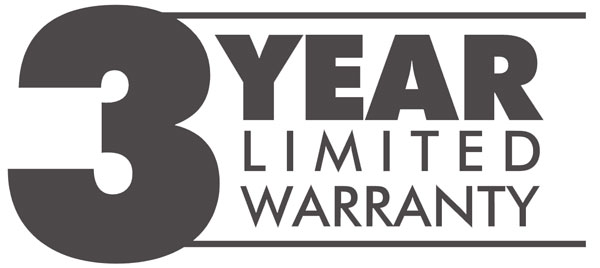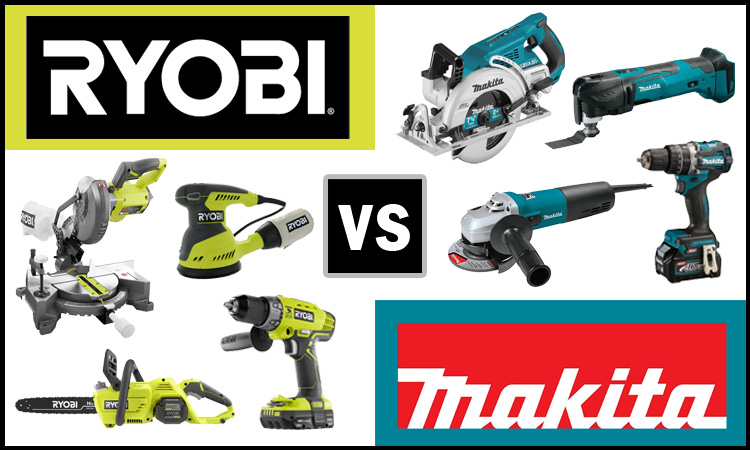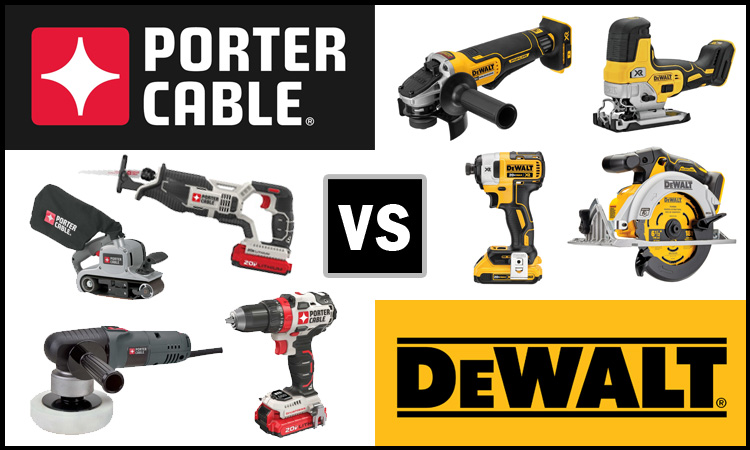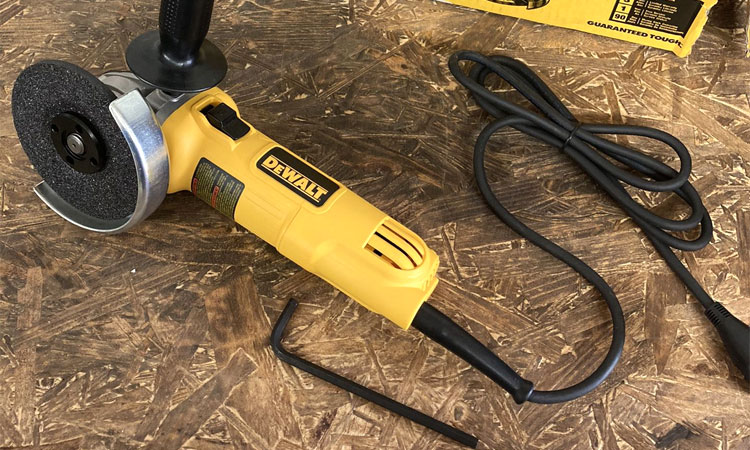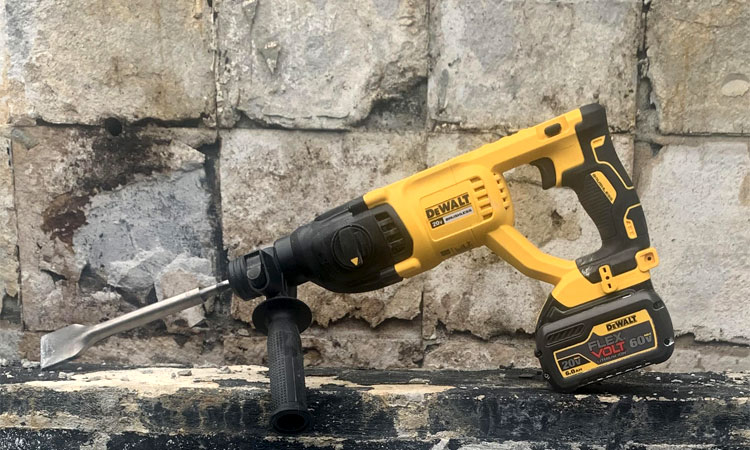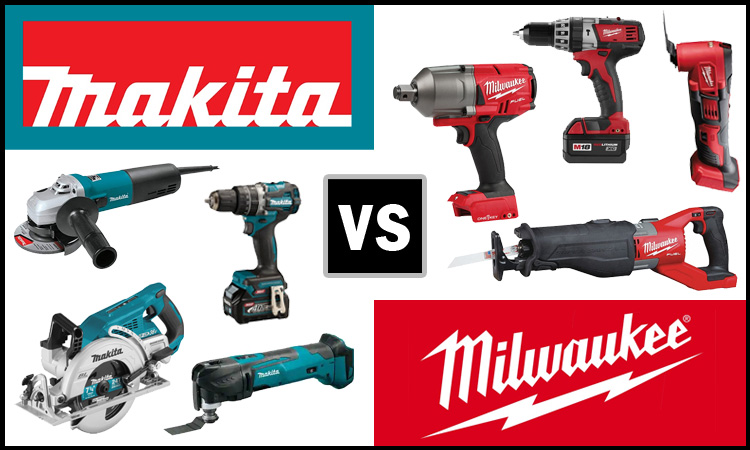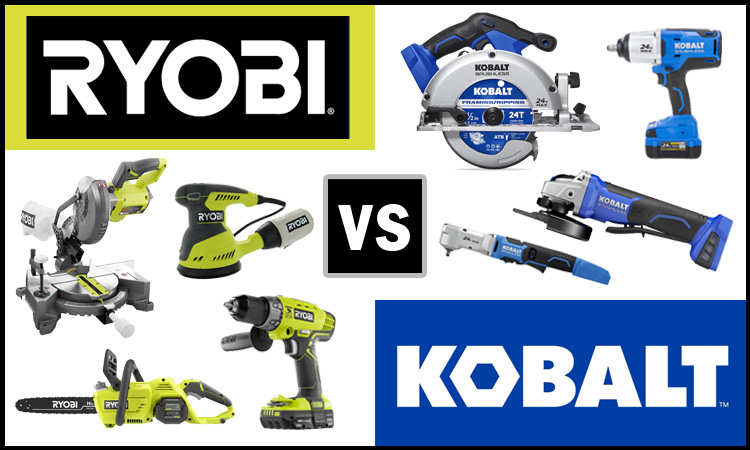Ryobi vs DeWalt (Which is Better?)
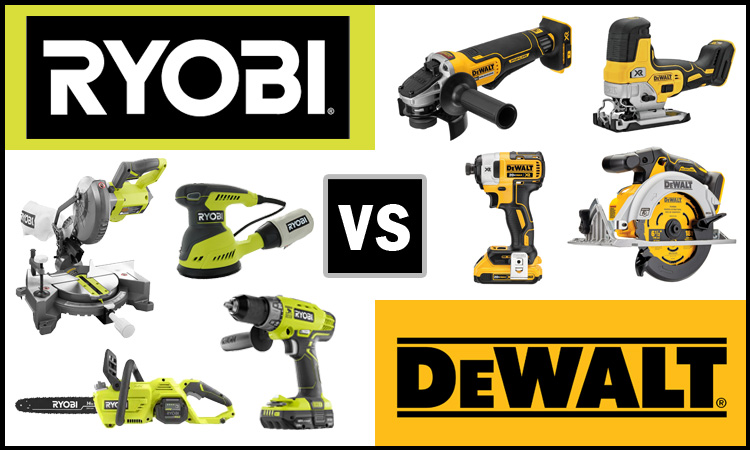
Most tradesmen or DIY enthusiasts should be familiar with the names “Ryobi” and “DeWalt”. Both of these manufacturers have served as icons within the power tool industry and offer extensive product catalogs, much to the delight of awaiting consumers. However, this popularity, in turn, has posed quite the quandary.
Many prospective buyers now find themselves torn between the purchase of Ryobi and DeWalt tools, unable to differentiate between the merits of each. Luckily, this is where the following guide should prove quite useful.
What follows is a comprehensive comparison of Ryobi and DeWalt tools, in a side-by-side fashion. This comparison is levied in regards to multiple characteristics, traits, and qualities of each brand, providing enough information for each consumer to make their own informed purchasing decision.
History
Ryobi and DeWalt both harbor significant legacies of success, dating back many years. From their earliest days, each of these manufacturers have strived to produce and offer nothing but the most premium of products.
The following is a brief history of Ryobi and DeWalt’s rise to mainstream notoriety.
About Ryobi Tools
Ryobi Tools was initially established in 1943, as Ryobi Limited. In these earliest days, Ryobi produced metal die-cast products. The company eventually expanded into the manufacturing of plastic die-cast products in 1954.
Throughout its tenure, Ryobi produced a number of interesting products, including door closers and fishing tackle.
Ryobi’s first foray into power tool production took place in 1968. These efforts quickly proved successful, as consumers continued to find interest in this growing sector of the tool/home improvement industry.
Nonetheless, Ryobi continued to manufacture many additional products, including industrial printers, and even golf clubs.
Interestingly enough, Ryobi seemed to find greater favor in the sale of other goods, outside of their power tool portfolio. This led to the eventual licensing of the company’s brand to third-party manufacturers, who began producing power tools under their namesake.
Ryobi first sold its stake within the American power tool market, at the turn of the new millennium. Eventually, any remaining stakes within the company’s power tool division were liquidated to the Kyocera Group in 2018.
Today, all power tools manufactured for North American distribution under the Ryobi name are produced by Techtronic Industries. TTI is also the parent company of fellow power tool brand, Milwaukee.
See Also: Ryobi vs Makita
About DeWalt Tools
In 1922, the DeWalt tool company was founded by Raymond DeWalt, the Superintendent of Seabrooks Farms. In the beginning, Dewalt’s business was founded upon the invention of a woodworking machine that was developed with the purpose of increasing productivity. This machine became well known for its versatility considering it could be configured in nine different ways.
In 1924, the first DeWalt Company plant was established in Leola, Pennsylvania. In addition to its “Wonder Worker” universal woodworking machine, DeWalt started offering a dedicated mortiser and jointer, thus beginning the expansion of its catalog.
During the 1940s, the DeWalt company began to expand rapidly striving to meet the needs of the government orders for national defense and wartime machinery.
The next decade saw considerable expansion for the DeWalt company through first its acquisition by the American Machine Foundry and then the extension of its operations into Canada. Consumer demand became so high that considerable manufacturing space had to be added to the current factory.
In 1992, DeWalt introduced its first line of portable electric tools designed for contractors and professional woodworkers. By 2001, this line had expanded to encompass over 200 tools in total and more than 800 accessories. These cordless power tools were offered in varieties ranging from 12V to 20V.
During the following years, DeWalt opened several new manufacturing facilities, further expanding their production capabilities. Today, DeWalt is owned by Black & Decker, and employs approximately 13,000 workers, across the US, as well as in foreign countries.
The company continues to expand upon its already enormous inventory of traditional and cordless power tools.
See Also: DeWalt vs Craftsman
Manufacturing
Many consumers place a significant amount of consideration into a tool’s country of origin. Therefore, it is only fair that we compare such characteristics, when analyzing Ryobi and DeWalt in a side-by-side fashion.
The following is a general overview of Ryobi and DeWalt’s manufacturing practices.
Where Are Ryobi Tools Made?
Ryobi Tools is headquartered in Fuchu, Hiroshima, Japan. The company operates several production facilities in the country of Japan as well, though today, the vast majority of Ryobi tools are manufactured in China.
Ryobi also operates a manufacturing facility in Shelbyville, Indiana, which produces numerous specialty-branded accessories.
To date, this is Ryobi’s only production facility located within the continental United States, although one of the company’s main finance offices is located in Chicago, Illinois. In total, Ryobi operates 12 manufacturing facilities, located in 6 individual countries.
Read Also: Ryobi vs Milwaukee Tools
Where Are DeWalt Tools Made?
DeWalt Tools is headquartered in Towson, Maryland, a suburb of Baltimore, and operates a total of seven manufacturing facilities in the United States. These facilities are located in the following United States cities.
- Shelbyville, Kentucky
- Greenfield, Indiana
- Cheraw, South Carolina
- New Britain, Connecticut
- Hampstead, Maryland
- Jackson, Tennessee
- Charlotte, North Carolina
However, not all DeWalt tools are produced solely in the United States. DeWalt also owns manufacturing facilities in Mexico, Italy, the Czech Republic, China, Brazil, and the United Kingdom.
For the most part, DeWalt tools which are manufactured in the US will feature the company’s “Built in the USA with Global Materials” label.
See Also: DeWalt vs Kobalt Tools
Product Line
Both Ryobi and DeWalt showcase rather impressive product catalogs, which are as diverse in scope, as they are sizable. This proves immensely popular with both hobbyists and tradesmen alike, who seek out the ultimate in convenience and durability.
The following is a general overview of Ryobi and DeWalt’s most popular product offerings.
Ryobi
Ryobi’s product line is actually quite significant in size. This is especially the case when referencing the manufacturer’s 18V One+ series of power tools. This series alone encompasses over 260 individual tools making it easier than ever to get the job done, without lugging around numerous battery packs and chargers.
Ryobi’s 18V One+ series of tools includes impact drivers, drills, saws, and nail guns. Also compatible with the same battery pack is a wide array of specialty, battery-operated yard equipment, including mowers, string trimmers, hedge trimmers, and chainsaws.
Additionally, Ryobi also offers numerous worksite radios and high-discharge lights as part of the One+ family of tools.
Aside from those tools offered within the One+ series, Ryobi also manufactures and markets a large number of heavy-duty 40V tools as well. Some of the most popular tools of this make include tillers, leaf blowers, and generators, all of which are designed to the highest of standards.
See Also: Ryobi vs Ridgid (Brand Comparison)
DeWalt
The early 90s brought on DeWalt’s climb to dominance within the power tool market with the release of the company’s first set of cordless power tools. This early success was quickly capitalized on with the release of 30 additional cordless tools in just four years. Perhaps the most notable of these tools were those in DeWalt’s 14.4V line.
The 20V Max line serves as DeWalt’s most prominent series of power tools to date. There are nearly 200 power tools available within this series, with more being released every year. The 20V Max series’ most notable offerings include portable drills, Sawzalls, impact wrenches, nailers, and grinders.
DeWalt now answers every need of the professional job site with its line of 60V Max power tools. These tools go beyond the standard 20V offerings by producing maximum power for those heavy-duty applications.
When paired with DeWalt’s 60V batteries or the versatile 20V/60V FlexVolt battery, tradesmen have tools that can get the job done. Popular tools found in this series include rotary hammers, circular saws, air compressors, and nail guns.
DeWalt power tool company also manufactures a complete line of durable hand tools besides the well-known power tools. Over the years, DeWalt expanded its offerings to include outdoor equipment, storage and workspace solutions, and even protective workwear, such as gloves, footwear, and knee pads.
See Also: DeWalt vs Porter-Cable (Tool Comparison)
Technology
Ryobi and DeWalt have both served as innovators within the power tool industry, in their own right, pioneering a wealth of development along the way. The following are several of Ryobi and DeWalt’s most notable technological advances.
Ryobi
Whisper-Series Technology
When designing its 40V series of power tools, those at Ryobi understood that most consumers would appreciate a much quieter operating experience. This led to the introduction of Ryobi’s Whisper-series technology.
This innovation drastically reduces noise emission from the company’s 40V line of lawn and garden tools, including mowers, chainsaws and weed eaters. In fact, Ryobi claims these tools to be 85% quieter than gas-powered tools of the same design.
18V One+ HP Brushless Motors
Ryobi greatly increased the appeal of its various power tools with the introduction of its One+ HP brushless motors.
These new-era motors are designed to provide enhanced power and durability while operating in absence of excessive noise and vibration. This, in turn, equates to a more ergonomic, enjoyable operating experience.
Link Storage Solutions
As of late, Ryobi has also pioneered a new and incredibly sensible way of organizing and storing various power tools. The company refers to this innovation as Link Modular Storage.
Offerings within this lineup include shelves, totes, and customizable hangers. All products within this series feature universal locks that are applicable to any Ryobi power tools.
Related: Ryobi vs Porter-Cable
DeWalt
FlexVolt Batteries
DeWalt’s line of FlexVolt batteries was introduced to much fanfare. These batteries are dual voltage in nature and provide adequate power for use with both 20V and 60V DeWalt portable power tools.
The FlexVolt batteries automatically switch voltage as you change tools. As such, these batteries are among the most versatile on the market, allowing consumers to pack a single type of battery for any application and can power over 200 products.
Jobsite WiFi
DeWalt’s Jobsite WiFi Access Point is perfect for any job site. The simplicity of its 4 step setup process along with its IP67 rating against dust and water makes it the perfect solution for any job site.
The access point automatically connects and reconnects as it is moved around the site. The DeWalt Jobsite WiFi access point can withstand a 10-foot drop and continues to work even in extreme temperatures in excess of 120 degrees.
Tool Connect
DeWalt’s Tool Connect is an innovative tracking system for tools and batteries. This app used in connection with Bluetooth tags and chips can be used to track a job site’s equipment with ease.
With the use of the Tool Connect app loaded onto a device, the location, status, and battery condition of each tool can easily be checked and monitored even if the tools are at a different location.
The use of DeWalt’s Tool Connect streamlines inventory management and enhances security.
Warranty and Service
The average power tool is subject to a wide range of abuses during its lifetime, placing increased importance upon a particular manufacturer’s customer service. More specifically, the warranty offered with any power tool is of immense value, and should not be overlooked at the time of purchase.
The following is a side-by-side comparison of Ryobi and DeWalt’s warranty policies.
Ryobi
Ryobi has gained quite a reputation for producing high-quality, durable power tools. This is a reputation that Ryobi intends to back by whatever means necessary.
As a result, Ryobi backs the vast majority of its 18V power tools with a 3-year limited lifetime warranty. This warranty protects against material or workmanship-related flaws, though it does not cover incidental damage that results from mishandling.
During the initial three-year warranty period, consumers can return any defective Ryobi power tool, for factory-authorized return or replacement. Any services of this type are rendered without additional cost to consumers and are expedited as a matter of customer convenience.
Aside from this standard 3-year warranty, Ryobi also backs their 40V Lithium-Ion battery-operated power tools with a similarly structured 5-year warranty policy.
This warranty also provides coverage against any and all forms of defects in material or workmanship.
Read Also: Ryobi vs EGO
DeWalt
The majority of DeWalt’s portable power tools are backed by a 3-year limited lifetime warranty. While this warranty covers defects in materials and workmanship for the duration of the life of the tool, this policy does not cover any issues that stem from normal wear and tear of the tool.
Besides the standard 3-year limited warranty, the DeWalt company also offers its customers a One-Year Free Service Contract. This contract states that DeWalt, during the first year of ownership, will repair any defects or worn parts caused by normal use and wear, with no cost incurred by the consumer.
Additionally, DeWalt tools feature a 90-day Money Back Guarantee. If you are not satisfied with your DeWalt power tool purchase for any reason, you may return the product for a full refund with no questions asked.
DeWalt features other specialty warranties such as:
- Full Lifetime warranty on Mechanics tools
- Full Lifetime warranty on hand tools
- 1-year limited warranty on compressors
- 30-day money-back guarantee on footwear
Ryobi vs DeWalt: And The Winner Is…
Without a doubt, Ryobi and DeWalt are both responsible for producing some of the industry’s most highly-regarded power tools. However, these two iconic brands are far from being one and the same.
In fact, Ryobi and DeWalt’s numerous products are actually marketed to differing clientele. While Ryobi produces excellent tools for the average DIY enthusiast, most are not of the same industrial-grade quality as those products offered by DeWalt.
Therefore, when compared in a side-by-side fashion, DeWalt takes top honors over Ryobi.
DeWalt’s product catalog is extremely deep and ever-growing, while each of the company’s tools is designed to withstand years of constant, strenuous use. DeWalt’s FlexVolt batteries make it possible to perform virtually any task, without packing a wealth of additional chargers and batteries.
Perhaps most importantly, DeWalt offers a warranty policy unlike that found anywhere else within the power tool market. Each of DeWalt’s power tools comes backed with a 3-year limited-lifetime warranty, a 1-year service contract, and a 90-day satisfaction guarantee. This personifies unparalleled customer service to the highest degree.

